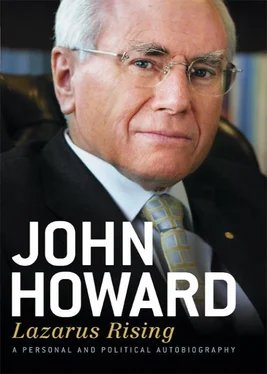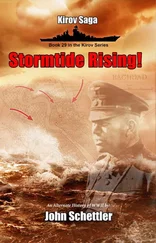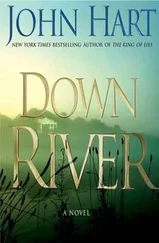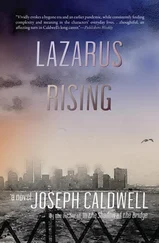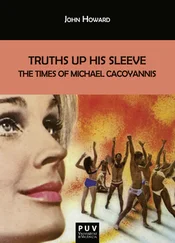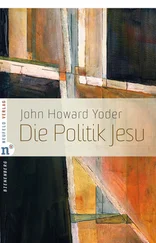Dad had been a heavy smoker all his life, which no doubt aggravated his lungs, already damaged by the gassing he had suffered close to 40 years earlier during his war service. With all that is now known of the harmful consequences of smoking, we tend to shake our heads at the foolishness of a generation which so extensively embraced the habit, often, as in my father’s case, worsening a war-caused condition.
Yet, given the older belief that smoking calmed the nerves, and the horrors which these men had experienced, their nicotine addiction was entirely understandable. With none of the reasons my father had, I smoked from the age of 21 until I was 39, finally kicking the habit while I was Treasurer in the Fraser Government. I didn’t find it easy, and given what Dad had experienced in war, I could understand why he kept smoking until a few months before his death.
1954 was the last year that my father enjoyed reasonably good health. A combination of the chronic bronchitis which afflicted him as well as intense worrying about his business exacted its toll. The following year saw his health collapse dramatically: he suffered in rapid succession from pleurisy and an attack of double pneumonia. Dad spent a large part of 1955 resting at home, away from his business. He would be there when I returned from school. We would often talk politics or play chess. It was, despite Dad’s ill-health, a wonderful conjunction in our lives which drew us much closer together in the space of just a few months. Regrettably it was not to last.
Towards the end of the year he made arrangements to lease the business to a trusted associate who had operated the workshop in the garage for close to a decade. Sadly, on the very day, 30 November, that he was to hand over he died suddenly of a cerebral haemorrhage, at the age of 59. When it happened I was playing cricket for my school at Blick Oval, Canterbury. My brother Wal arrived and told me that Dad had suffered a stroke, and that I should come home. When we were both in his car he put his arm around me and simply said, ‘He’s gone.’
I missed my father intensely. We had really got to know each other so much better during the last two years of his life; we had found a great common point of interest in politics. On many occasions, years later, I would think to myself how much pride Dad would have derived from my political career. Those last months in 1955, when we spent much more time with each other, I recall even to this day.
Understandably, my life changed enormously after the death of my father. My two eldest brothers had both married only months before his death, Bob had left school and gone to teachers’ college and, as a result, I was thrown even more into the company of my mother. We talked endlessly about family history, current events and, of course, the need for me to succeed at school and go on to university.
Although undecided until my last year at school, I enrolled at Sydney University for a law degree. There is no doubt that I was influenced by my brother Stan having become a lawyer. He became a partner in one of Sydney’s best-known firms, Stephen Jaques and Stephen (much later Mallesons), aged only 27, and would be a most successful and highly regarded corporate lawyer as the years went by.
Thanks to Stan I had a great experience for eight weeks between school and university. He arranged a job for me as an assistant to a barrister’s clerk in Denman Chambers in Phillip Street, Sydney. In Phillip Street, each floor of barristers was looked after by a clerk; the really good ones were invaluable, such as Jack Craig, with whom Stan had arranged my job. The barristers looked after by Jack Craig were some of the best and most colourful then at the Sydney bar. They included Clive Evatt QC, brother of Bert, then still federal Labor leader. The latter often turned up and used the chambers for some of his meetings. The brothers were a big contrast. Clive was likeable and amusing. Bert was sullen and unfriendly. John Kerr was another cared for by Jack Craig. Kerr was friendly and stylish. Amongst other things, I did his banking. He had a good practice.
Another prominent one in the group was Ken Asprey QC, who became a judge, and who in the 1970s would write a report for the federal government recommending major taxation reform. I was just the office boy but, given the personalities involved and the taste of the legal profession I was able to indulge, it was a heady experience. I was very grateful to Stan for setting it up. It was my first paying job. When I served petrol in my father’s garage I was paid son’s rates!
When aged about nine, I had been identified with a hearing problem, during a routine health check conducted at my school. It was an affliction that I had been born with and, whilst something of a nuisance during my younger days, it was not until I entered my later teens that it became a real hindrance. It worsened quite markedly during my first year at university, and by my second year I had to wear a large and not particularly effective hearing aid.
Deafness made it very difficult for me at lectures. I would sit as close as possible to the lecturer with my hearing aid turned up, but still missed a lot. I owed much to some of my law school friends, who generously lent me their notes. Although I was reluctant to admit it to myself at the time, my bad hearing really meant that I could never become a barrister, something which I had had at the back of my mind for a long time. In 1960, I underwent an operation which gave me back some hearing in my right ear, and in 1963 there was a similar operation on my left ear. These two operations gave me about 60 per cent of normal hearing. This was a huge improvement, and I felt very grateful to the surgeon, the late Sir George Halliday.
Despite a restorative operation on my right ear in 1985, my hearing continued to deteriorate, but fortunately the development of modern and inconspicuous hearing aids meant that I have been able to retain reasonably serviceable hearing.
Directly enrolling for a law degree meant that all of my university time was spent at the law school in Phillip Street, Sydney. I only ever went to the main university campus to sit for exams, or attend Union Night debates, which I did fairly frequently. Lectures in Phillip Street were spread amongst the main law school building, the old Phillip Street Theatre and the Teachers Federation Building.
Some 250 enrolled in the first year, of which fewer than 20 were women. Thirty-five years later, when my daughter, Melanie, enrolled at Sydney University Law School, more than 50 per cent of the first-year intake were women.
Like all academic years the class of ‘57 had its share of students who achieved eminence in their chosen profession. It included Terry Cole, later a Supreme Court judge, a Building Industry Royal Commissioner and the man who conducted the Australian Wheat Board Inquiry. There was also Roger Gyles QC, who became a Federal Court judge and had previously been a Special Prosecutor pursuing illegally evaded tax. Murray Gleeson and Michael Kirby, later Chief Justice and a justice, respectively, of the High Court were in the class of ‘58.
My first two years were full-time, and then I commenced three years of articles with a solicitor, attending lectures early in the day and late in the afternoon. With the law school in easy walking distance, such a daily schedule worked smoothly.
My lecturers were a mixture of academics and practising lawyers. The doyen of the academics was Professor Julius Stone, Challis Professor of Jurisprudence and International Law. Julius Stone had a formidable intellect. An erudite English Jew, he had written a landmark textbook on international law. He was a lecturer of mine in 1960, the year in which the Israelis snatched Adolf Eichmann from Argentina and flew him to Israel for trial for his alleged major role in the Holocaust. There was much debate about the legality of what the Israelis had done. Stone held a public lecture on the legality of the Israeli action at the old Assembly Hall in Margaret Street, Sydney. I went to the lecture with three of my law school friends, Marcus Einfeld, Peter Strasser and Murray Tobias, all of whom were Jewish.
Читать дальше
